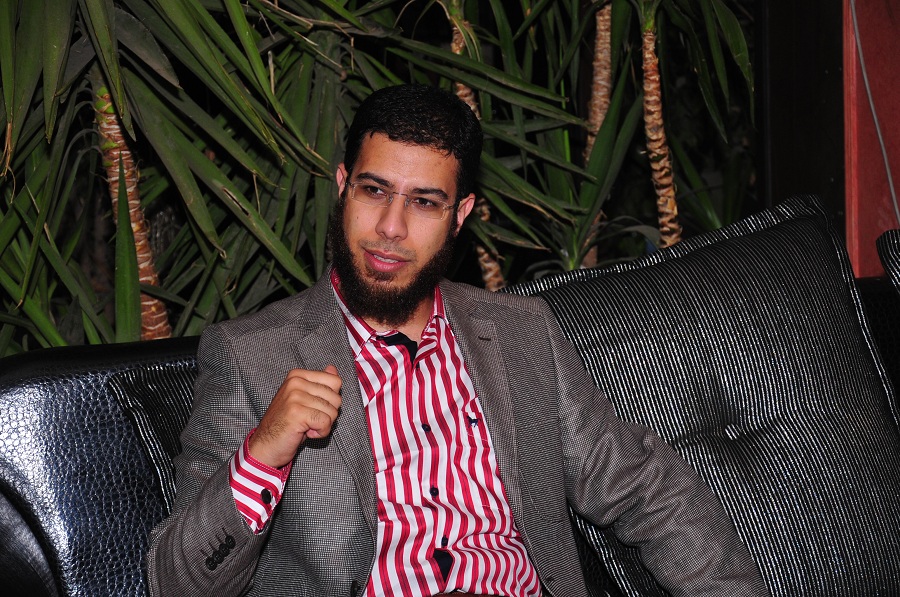
By Fahmi Howeidi
From regulating demonstrations to regulating storytelling, from tightening security on the streets to securing cyberspace, and from the protection of society to monitoring it: all would be included. This was the message sent by the Ministry of Interior when it announced it would be establishing what it called “a system to monitor security risks posed by social networks”.
The measure was revealed by Al-Watan newspaper on 2 June when it published a tender request from the Ministry of Interior inviting specialized companies to submit proposals for such a system’s creation. The ministry argued that establishing the system came from a desire to confront “the volatile risk and dangerous security challenge” represented by social networks. The call for tenders included a long list of threats and enemies the state is exposed to from this dangerous and scattered phenomenon, including: defamation of religion, incitement of debauchery and immorality, the spread of myths and rumours, the encouragement of extremism and violence, and the mobilisation of demonstrations and sit-ins (the tender request also mentioned the threat posed by “calls for normalisation with the enemy,” a confusing reference considering normalisation with Israel was obtained by the peace agreement, which raises questions about what is meant here by “enemies”).
The interior ministry justified its decision by claiming to be confronting a mix of ethical and political vices. In the current climate, in which arrangements are being made for a new presidency, it is no exaggeration to say that the reference to ethics was cover for an effort to control political activities and the door activists play in them.
So what is really being requested is to identify those who pose a threat to society (the regime), determine their orientations, analyse their opinions and identify the relationships that connect them to others like them. They are also looking to shed light on the most common and powerful topics which have an effect on these networks and to track the entries of writers throughout different periods of time, etc.
In other words, it is no longer the case that every connection is private, whether on mobile phones or computers, which had been immune, or protected by the constitution, and free from penetration except for judicial consideration or by permission from the prosecutor.
The interior ministry has then become a third party, and has done so without getting judicial permission, as specialised companies can tap into millions of communications and gather the private information of individuals to provide them to the interior ministry.
The website Sada Misr (or “Egypt Echo”) has done a study on the issue, bringing in the opinions of experts to shed important light on the topic. The study, for example, shows that interior ministry eavesdropping on activists is not new. Since at least 2008, the security establishment has tapped lines in order to spy on activists, and has done so with the cooperation of the telecommunications sector and mobile and internet companies. When the state security headquarters were raided in 2011, documents and the minutes of meetings were found that linked security agencies and representatives of companies working in the telecommunications field. Over the last period the interior ministry has monitored the internet and computers specifically, but what comes as new, and what was revealed by the tender, was their desire to expand the scope of monitoring to include the largest possible circle in social media and communication channels. In other words, they will be monitoring Facebook, Twitter, YouTube and newspapers that appear online.
This is in addition to monitoring mobile phone programs, such as chat programs like WhatsApp and Viber. What is significant is that these activities and intrusions are being done in a secretive manner, without reliance on any evidence. No one knows where the information being collected on millions of people is going, or how it is being used.
In Egypt Echo’s estimation, the tender also reflects the regime’s fear of anything different in the public sphere, especially since most of the items requested for monitoring in the tender request have nothing to do with terrorism. Their criteria are loose and mainly related to vague ideas about knowledge and expression. The information to be collected is thus enormous and requires spending hundreds of millions of pounds, which is a waste of state resources. Huge amounts of money will ultimately be spent on procuring equipment and in the mobilization of an army of researchers and analysts, and this, at the end of the day, will come together to allow the government to monitor a small number of internet users, something that was done in the past at a much smaller cost.
Article 57 of the constitution explicitly protects “the sanctity of private life, which shall not be touched, and the confidentiality of which is guaranteed. It may not be confiscated or tracked or monitored, except by judicial warrant and for a limited period, and in cases specified by the law. The state is also committed to protecting the right of citizens in using general means of communication in all forms. And this may not be delayed or stopped or denied to citizens in an arbitrary way, and the law shall regulate this.”
The spying being done on citizens by the security establishment, whether the interior ministry or otherwise, violates all of this, as well as the laws and constitution in place since the Mubarak era. What is taking place now does not just support the previous system, but develops and expands it greatly, such that there is no longer any channel of communication between people that is beyond the intrusion of eavesdropping.
The question that comes to mind when considering the effort being exerted to develop the security system and provisions for monitoring and spying on people is this: Why are we not seeing a similar effort to develop education and encourage scientific research and improve health services? This is more of a rhetorical question, because the answer is well known, but it is proposed here as an expression of disapproval, and nothing more.
Translated from Al-Shorouk Newspaper



